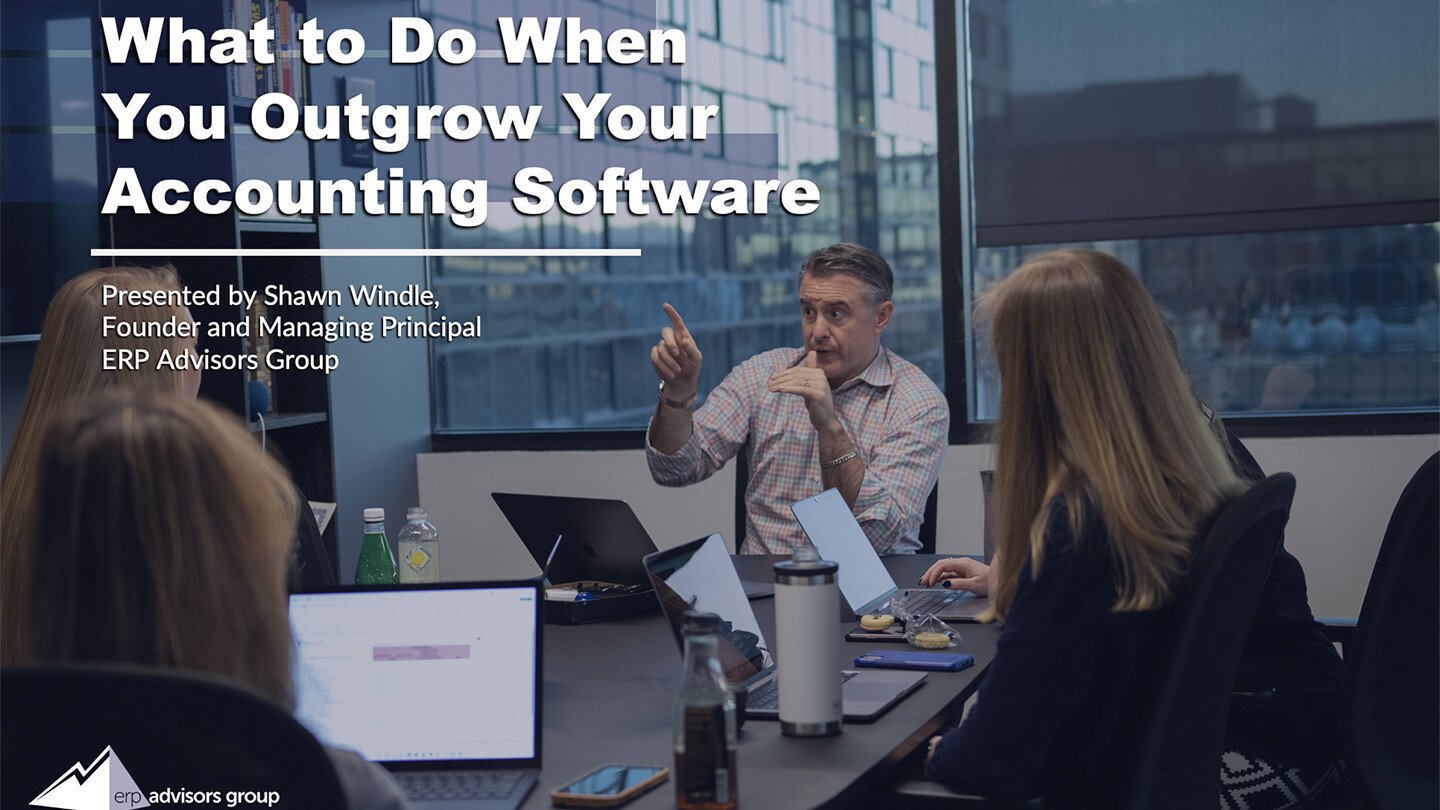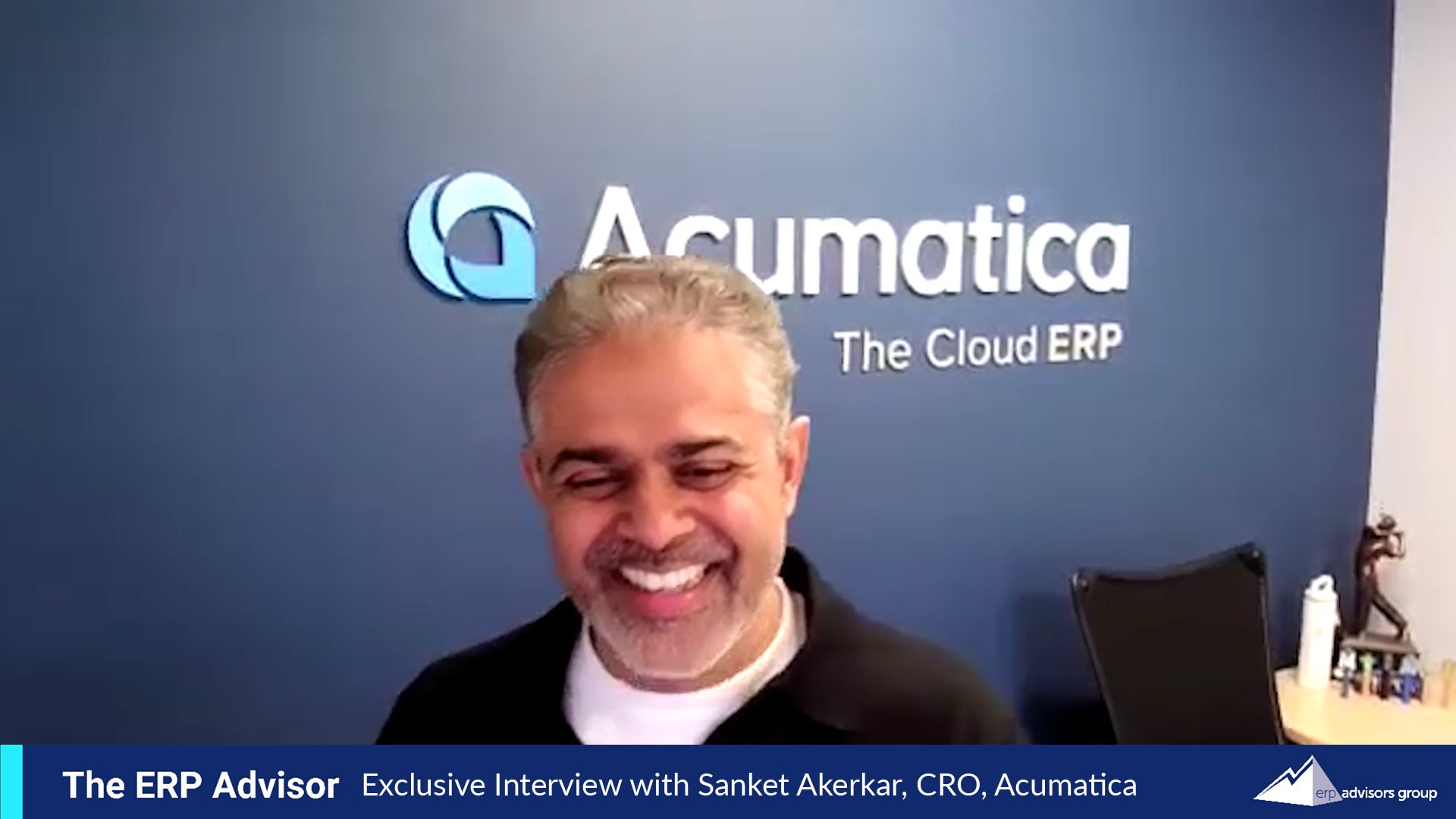
This Cybersecurity Awareness Month, tune into The ERP Advisor podcast where James McQuiggan, Cybersecurity Expert from KnowBe4, joins us for the fifth year straight. This year, he will tackle AI's evolving impact on organizational cybersecurity strategies. In this special episode, we will explore the cybersecurity risks of AI while understanding the real benefits of implementing AI tools throughout your organization.
Managing the Cybersecurity Risks of Bringing AI into Your Organization
Artificial Intelligence, or AI, has continued to evolve since the first iterations were introduced by Alan Turing in the 1940’s. From Deep Blue’s chess-playing system in the 1990’s to the release of generative programs such as ChatGPT in 2022, AI has continued to advance and become more sophisticated with each passing year.
While AI has been embedded in ERP for decades, the newest trend, generative AI, is revolutionizing the way we interact with our software solutions. With AI’s expansion, it has become difficult to avoid its impact on all aspects of life, especially in terms of cybersecurity. Knowing how to safely utilize these tools while protecting your business from becoming a victim of cybercrime is crucial to navigating the modern software world.
Modern Trends in AI Crime
With new technological advancements comes those who will use that technology maliciously. Modern cybercriminals are using generative AI in unique ways to scam businesses and individuals.
Deepfakes, defined by Webster Dictionary as, “images or recordings that [are] convincingly altered and manipulated to misrepresent someone as doing or saying something…” have become more prevalent (and realistic). These tools can also work in real-time, enabling cybercriminals to become increasingly sophisticated and effective.
Imagine meeting with your boss or an executive from your company over Zoom or Teams where they instruct you to pay an outstanding balance; except, THEY never actually called you. In this all-too-common scenario, a cybercriminal just ran off with thousands, if not millions of dollars. Unfortunately, it is happening all over the world, and it is no longer just the vulnerable communities falling victim. Even major corporations are being taken advantage of. This is just one example of an AI enabled threat emerging in the market.
While many topics discussed during Cybersecurity Awareness Month paint a bleak picture for the future of AI, we must remember what the real message is: education. The greatest defense a business has against cybersecurity threats is the education of their workforce to recognize and combat attacks. With that mindset, AI no longer appears as a hindrance, it becomes an asset.
The Benefits of Using AI in your Business
Despite its use by criminals to combat increasing levels of cybersecurity for erp, AI is not all bad and can provide a range of benefits for your business. When used correctly, the advantages provided by generative AI can significantly increase production and free up your employees for more value-added tasks.
Think of AI as a “little agent.” Once you provide it with the proper information and instructions, it can function as a helpful tool for your organization. Whether that be through generating reports or the automation of tedious tasks, AI can be optimized to fulfill your business’s needs.
On top of optimizing business operations, AI can help safeguard your company from external AI attacks. There are programs that use AI to keep your company’s data safe, making them an important resource.
Cautionary Use of AI in ERP Software
As in every other facet of life, emerging AI tools are quickly becoming more and more prominent in the ERP space. ERP Software vendors are implementing new AI functionality in their platforms every single day, and its full potential has yet to be unlocked. However, the progression of generative AI has posed a unique risk to ERP platforms in the form of proprietary data loss. Allowing AI access across your ERP system’s customer and client data could be risky. Your confidential information may be absorbed into the AI collective knowledge base! Policy decisions about using AI to autogenerate material or reports with sensitive information should direct what your employees are permitted to create.
Using and Protecting Yourself from AI
When considering implementing AI into your organization, there are a few questions to ask yourself before jumping in:
- What is the problem you’re trying to solve? Establishing the pain points you want to mitigate and evaluating the viability of an AI solution is an important first step. Don’t use AI just because others are saying you need to.
- What is your ERP AI policy going to be? Creating a clear policy for approaching the use of AI in your organization will set the guidelines for safe AI usage. This step includes setting up the framework needed, evaluating risks, and knowing how it will impact different resources within your team.
- How will you prepare for the tool to go live? Test the tool first to prevent mistakes and identify nuances that come with it before rolling it out.
These steps will better equip your team for the big change coming to your software system should you choose to implement an AI tool or turn on the modules provided by your ERP vendor.
But, in order to truly confront these questions, you have to stay knowledgeable on AI trends and news. It is easy to blow past understanding certain aspects but doing so can jeopardize your job and the business. AI technology and software vendors’ AI strategies update all the time. By doing your research and staying up to date, you can do your part in protecting and advancing your organization.
Finally, stay “politely paranoid.” In the constantly evolving world of AI, skepticism can be valuable in preventing your team from becoming a victim of a cyberattack. Something as simple as a message double checking that someone on your team REALLY asked you to make that large wire transfer could save your company millions of dollars. The general public has access to a wide variety of dangerous AI tools, so awareness and continuous learning are the best ways to guard yourselves from an attack.
Conclusion
Artificial Intelligence becomes more advanced every day. Companies are continuing to implement AI tools and develop their AI strategies, while ERP vendors pour resources into the development of even better tools. This trend will not be going anywhere, anytime soon, so being knowledgeable and aware of that technology is the best way to protect and optimize your organization. Need to upgrade to an ERP which can avail yourself of new AI features? Schedule a free consultation.





